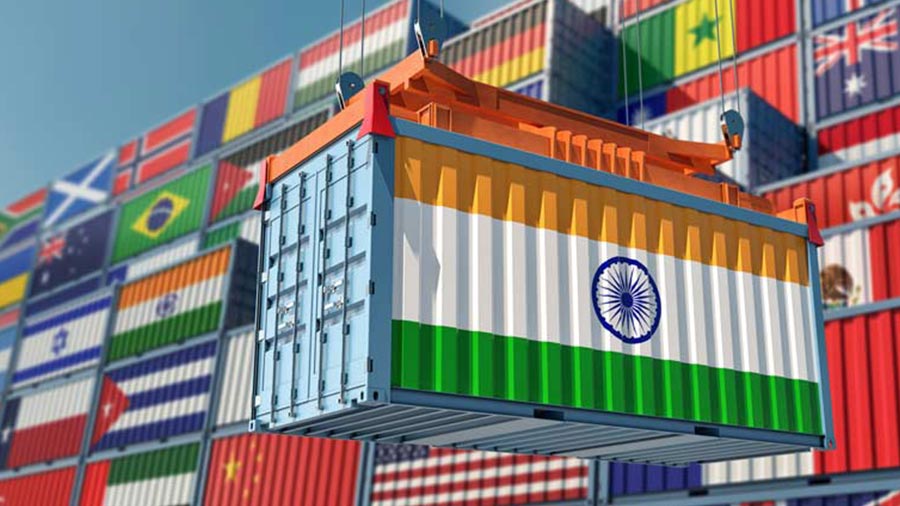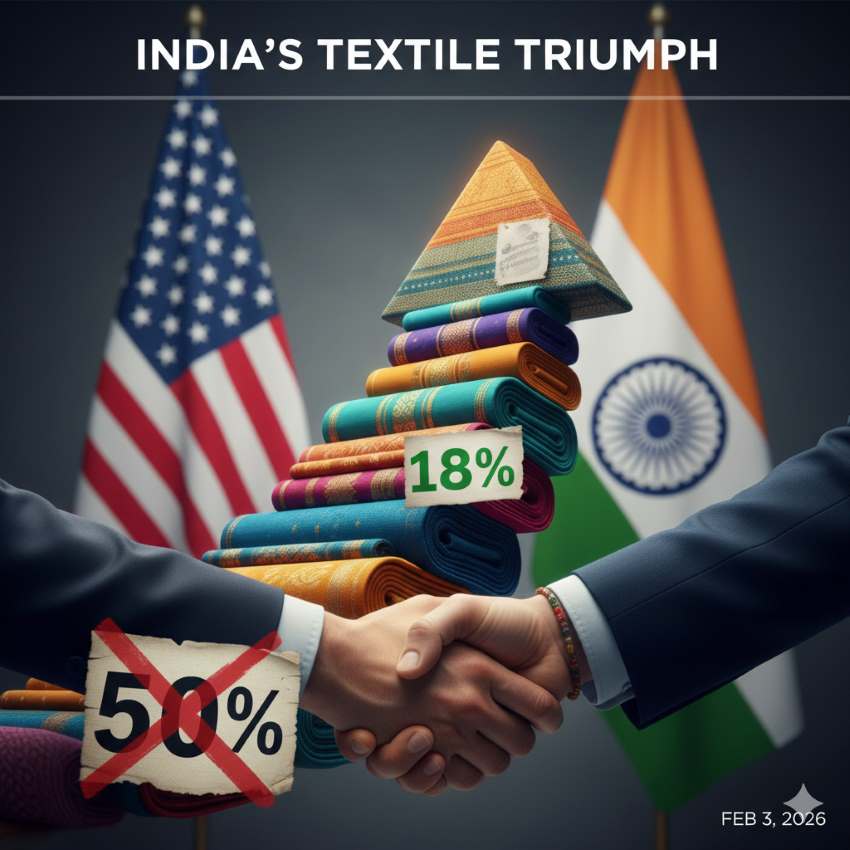
In a major policy reversal, the Ministry of Chemicals and Fertilizers, through a notification in the Gazette of India dated November 12, 2025, has immediately rescinded multiple Quality Control Orders (QCOs) covering the entire polyester value chain, from raw materials to various types of yarn.
The rescission covers key inputs like Terephthalic Acid (TPA) and Ethylene Glycol (EG), as well as crucial intermediate and finished products such as Polyester Staple Fibres (PSF), Polyester Partially Oriented Yarn (POY), and Polyester Continuous Filament Fully Drawn Yarn. The move—a long-standing demand from downstream textile manufacturers—is set to significantly reshape India's domestic Man-Made Fibre (MMF) supply chain and global competitiveness.
The industry’s long-awaited relief
The official orders, such as S.O. 5129(E) concerning Terephthalic Acid, cite the underlying reason for the dramatic policy shift. The Ministry of Chemicals and Fertilizers stated the decision was made, "the Central Government being of the opinion that it is necessary to do so in the public interest, after consulting the Bureau of Indian Standards."
These QCOs, which mandated compulsory BIS certification for both imported and domestically produced polyester items, had effectively acted as a non-tariff barrier, restricting the availability of diverse and specialized raw materials for smaller and export-focused units.
The primary impact of the QCO rescission is the immediate normalization of the import process for crucial polyester inputs, which is expected to address the price disparity that plagued the sector.
Commenting on the immediate impact, Sanjay K Jain, Chairman ICC National Textiles Committee, stated, "QCOs on Polyester & Polyester Fibre rescinded... a long standing demand of industry to give a level playing field to industry as MMF constitutes 70% of the global industry & India was rendered uncompetitive due to very high raw material price as against China, Bangladesh & Vietnam."
This confirms that the policy decision aims to align Indian raw material costs with global benchmarks, directly benefiting the downstream textile and garment manufacturers who had previously been forced to procure expensive inputs from a limited pool of domestic suppliers.
Impact Analysis: Domestic market competitiveness
The removal of QCOs is predicted to inject much-needed competition into the domestic market, leading to several key shifts:
- Lower input costs: Downstream spinners and weavers will gain unrestricted access to competitively priced, specialized MMF and yarn from global sources. This could lower the overall cost of production for Indian fabrics and garments.
- Product diversification: The barrier to importing specialized yarns (often not manufactured in India or produced in insufficient quality) is removed, allowing MSMEs to manufacture high-value technical textiles and specific performance-based fabrics for both domestic and export markets.
- Pressure on domestic producers: Large, integrated domestic polyester producers who had benefitted from the QCO protection may now face significant competitive pressure, potentially leading to a rationalization of domestic prices to match import parity.
- Boost to exports: By making raw materials cheaper and more accessible, India's apparel exporters will be better placed to compete against global rivals like Vietnam and Bangladesh in the MMF-dominated global trade.
The Global Fiber Gap: Data Table
The rescission comes as India actively tries to shift its textile focus from its traditional strength, cotton, to MMF, aligning with global trends. Globally, MMFs account for over 70% of total fiber consumption, a figure India struggles to match, underscoring the necessity of this policy change.
|
Fiber Mix Comparison |
Global Average |
India's Domestic Consumption |
|
Man-Made Fibres (MMF) |
70% - 77% |
20% - 42% |
|
Natural Fibres (Cotton, etc.) |
23% - 30% |
58% - 80% |
|
India's MMF Per Capita Consumption |
7.70 kg/capita |
3.10 kg/capita |
Source: Ministry of Textiles (2023-24), Economic Survey 2024-25, and Industry Reports.
Key Rescinded Polyester QCOs (Effective Nov 12, 2025)
The notification simultaneously revoked QCOs across the complete manufacturing spectrum, ensuring uninterrupted material flow.
|
Gazette Order Number |
Rescinded Product |
Value Chain Stage |
|
S.O. 5129(E) |
Terephthalic Acid (TPA) |
Upstream Raw Material |
|
S.O. 5130(E) |
Ethylene Glycol (EG) |
Upstream Raw Material |
|
S.O. 5133(E) |
Polyester Staple Fibres (PSF) |
Intermediate Fibre |
|
S.O. 5135(E) |
Polyester Partially Oriented Yarn (POY) |
Intermediate Yarn |
|
S.O. 5134(E) |
Polyester Continuous Filament Fully Drawn Yarn |
Downstream Yarn |
|
S.O. 5131(E) |
100 Percent Polyester Spun, Grey and White Yarn |
Downstream Yarn |
The government's decision signals a clear priority shift towards boosting the competitiveness of the finished textile and apparel sector by ensuring affordable access to raw materials, positioning India to better capitalize on the global MMF wave.












